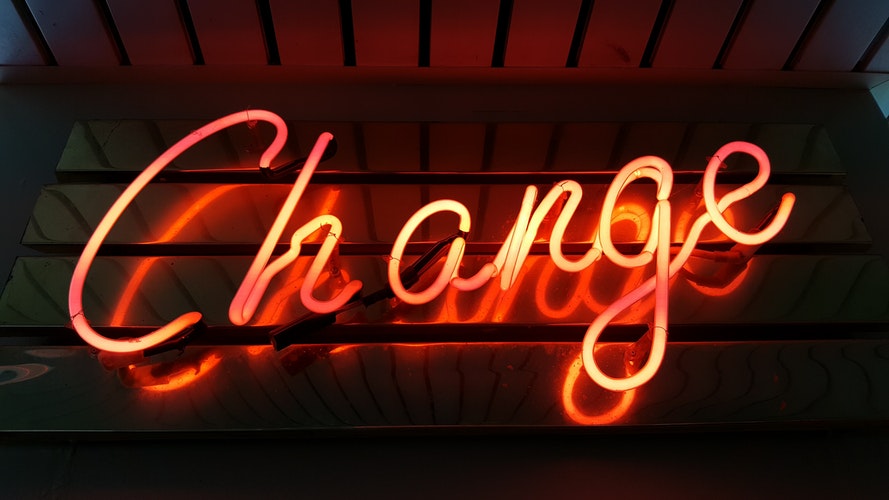Canada News
The art of sloganeering: How many ways can politicians say ‘change’?

They are the buzzwords of political campaigns worldwide, used time and again in various combinations, to sum up a campaign theme in few enough letters to fit on a podium sign. (File Photo: Ross Findon/Unsplash)
Change. Forward. Together. For you.
They are the buzzwords of political campaigns worldwide, used time and again in various combinations, to sum up a campaign theme in few enough letters to fit on a podium sign.
On Tuesday, the NDP became the fifth and final major party to unveil its campaign catchphrase, hoping “In it for You” will catch voters’ attention.
Dennis Matthews, a vice-president at Enterprise Canada who worked in the message mines as an advertising and marketing adviser to prime minister Stephen Harper, said “a ton of effort” goes into finding a phrase that can sum up an entire campaign in one short and snappy sentence.
“A campaign will do all kinds of research, look at all of their potential voters and what they’re looking for,” he said. “In a campaign you want to imagine the voter going into the voter booth and asking themselves a question.
A good slogan sets up that question so they can only pick you as the only option.”
The NDP’s new slogan points, without being negative, to the idea that the NDP are there to help the little guy while the Liberals and Tories are in it for themselves and their wealthy friends.
It’s similar both to the slogan the federal Liberals used in 2008, “Always Here for You,” and to the Conservatives’ current “It’s Time for You to Get Ahead.”
Such echoes are not uncommon, said Matthews, because “campaigns are referendums on the future.”
“Voters are looking forward so most campaign slogans at least hint at a forward-looking or action-oriented thesis and there are only so many words that fit that.”
“Forward together” was one of Winston Churchill’s most common speech slogans throughout his political career. It has been used by two of his successors as British prime minister — Margaret Thatcher in 1980 and Theresa May in 2017 — and at least two American presidential candidates. Richard Nixon used it in his inauguration speech in 1969 and Hillary Clinton turned to it for her presidential run in 2016.
In 2019, the Green Party of Canada is building on it for its slogan: “Not Left. Not Right. Forward Together.”
The Liberals have dropped the “together” part and are just going with “Choose Forward” in 2019. It’s remarkably similar to the 2004 Liberal theme phrase of “Moving Forward.”
The Bloc Quebecois is using “Le Quebec, c’est nous” — roughly, “We are Quebec.”
In 1980, Ronald Reagan’s slogan in his first successful presidential campaign was “Let’s Make America Great Again.” Twenty-six years later, Donald Trump tweaked it into one of the best-known political slogans in history. “Make America Great Again” hats and T-shirts are still common (Trump now has to decide whether he can still use it after four years in office).
In 2015, in an election campaign almost entirely about voter fatigue with a decade-old Conservative government, both the Liberals and NDP went with “change”: “Real Change” for the Liberals and “Ready for Change” for the NDP.
Scott Reid, who was a communications adviser to prime minister Paul Martin and is now a principal at the strategy firm Feschuk.Reid, said most slogans are developed as part of an intensive and lengthy research process to suss out a potential path to electoral victory. Polls and focus groups and voter outreach guide “a whole slew of decisions” including advertising spots and which public issues a campaign will prioritize.
“The slogan itself emerges from that,” he said.
As for the actual words? “I don’t believe they matter very much,” said Reid.
Few, if any, campaigns are lost on bad slogans and most slogans end up on the floor as soon as the last vote is counted. Some of the best aren’t even official slogans at all.
In 2011 “a strong, stable, national Conservative majority government” wasn’t the official Conservative campaign slogan but became the recognizable theme for a campaign appealing to voters tired of fragile minority governments.
Barack Obama’s 2008 presidential campaign added “Yes we can” to the political-slogan hall of fame, but his official slogan was actually “Change We Can Believe In.” “Yes We Can” was a holdover from Obama’s previous Senate campaign, a catchphrase he used in speeches, that took off as a rallying cry for his supporters.
As proof that slogans aren’t everything, one need only know that the Green Party of Canada also used “Yes We Can” for its 2006 election effort. That netted the party zero seats and less than five per cent of the vote.
Trudeau’s 2015 campaign is remembered for promising “sunny ways” even though Trudeau didn’t talk about sunny ways — borrowed from Wilfrid Laurier — until his victory speech on voting day.
Matthews said as in any advertising, the best slogans can’t always be predicted.
“Some of this stuff, you’ve got to put it out there and see if it catches on,” he said. “In the marketing world you can be a little lucky and land on something that really catches on. Sometimes it doesn’t.”





















